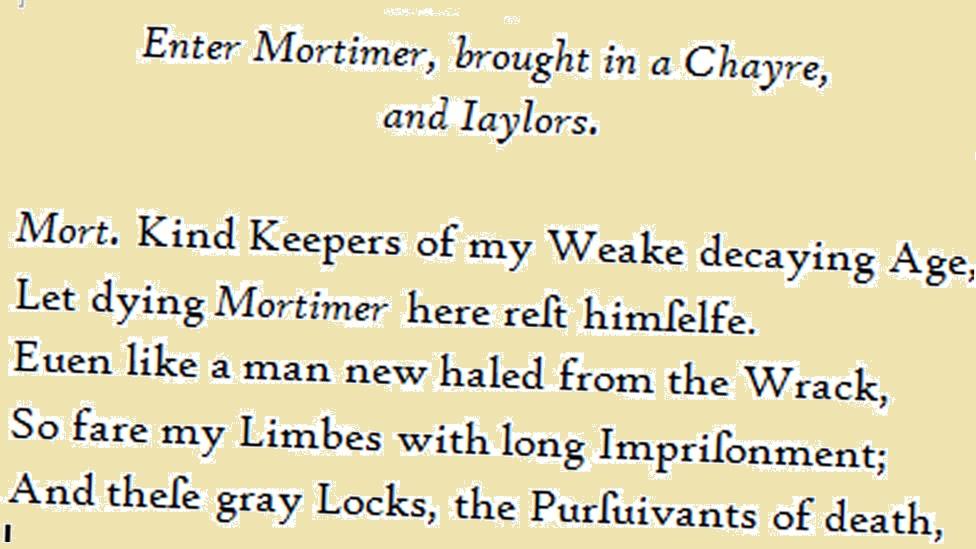The Vocabularist: Nerve-racking or nerve-wracking?
- Published

The poet Shelley (played here by Timothy Renouf) used the phrase "nerve-racking" in a letter in 1812
If something makes you very anxious is it nerve-racking or nerve-wracking?
The first recorded use of nerve-racking is in a letter by the poet Shelley in 1812, telling his friend he is glad to be away from the "nerve-racking and spirit-quelling metropolis".
But "rack" - from a family of English words to do with stretching - had long been used in connection with torture, and often applied to parts of the body.
In Milton's Paradise Lost (1667) humanity's coming afflictions include "Joint-racking Rheums" while the expression "Racking your brains" goes back at least as far as 1680.
In the early 20th Century "nerve-wracking" also began to appear - in the Times it was in an advert in 1905, and a 1910 news report on Peary's planned polar expedition. The New York Times wrote "the air of America is invigorating and nerve-wracking" in 1908.
"Wrack" comes from another set of Germanic words with meanings shading from revenge into punishment and destruction, including "wreak" and "wreck".
The 14th Century poem Sir Gawain and the Green Knight sums up the history of Britain as "werre and wrake (war and wrack) and wonder".
Paradise Lost has heaven nearly "gone to wrack, with ruin overspred" - the phrase "wrack and ruin" had already been in use for 100 years.

"Wrack" as a word for seaweed seems to come from its being forced ashore like wreckage
Some people prefer "nerve-wracking" because they associate it with wrecking - the wording "nervous wreck" is recorded as early as 1871.
It was always likely that rack and wrack should overlap. Wr- at the start of a word has been hard to pronounce from the time when w began to sound in Old English as it does today.
Other Germanic languages do not have this problem as they pronounce wr- as vr-. So does the Scots Doric dialect.
Some experts believe that increasingly either the two consonants were reversed (as in "Rwanda") or the w was silent. The latter is certainly what happened from the 18th century on.
Like the pronunciation, the meanings of racking and wracking are hardly far apart.
In the First Folio edition of Henry VI, a character is said to be: "Like a man new haled (newly hauled) from the Wrack."
Surely, "from the Rack"? Some later editions thought so. Or is it really "Wrack" meaning "punishment" or "destruction"? We cannot tell. And Shakespeare - who meant it to be said, not spelt - may not have cared.

Did Shakespeare mean Rack or Wrack - or didn't he care?

The Vocabularist
Select topic "language" to follow the Vocabularist on the BBC News app

Subscribe to the BBC News Magazine's email newsletter, external to get articles sent to your inbox.